-
-
-
![Michael Rosen]()
-
CIO Insights are written by Angeles' CIO Michael Rosen
Michael has more than 35 years experience as an institutional portfolio manager, investment strategist, trader and academic.
RSS: CIO Blog | All Media
Fireside Reading
Published: 10-18-2022
It’s still beach reading weather in Southern California, but fireside reading seems more appropriate for mid-October. I have three non-fiction and five fiction books to recommend, each superb. Enjoy!
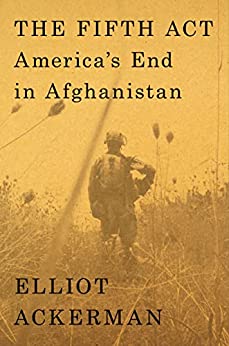
The Fifth Act, Elliott Ackerman
The history of America’s war in Afghanistan will be written for years to come, but an important first-hand account comes from Elliott Ackerman, a Marine officer, turned best-selling author, who served in Afghanistan. The Fifth Act is both a personal account of his experience, including heart-rendering depictions of bravery and friendship among both Americans and Afghans, as well as a clear-headed analysis of the strategic and tactical mistakes we made over twenty years. The Fifth Act is poignant, painful, gripping and tragic. We come away with admiration for those who served, and anger at those who ordered them there.
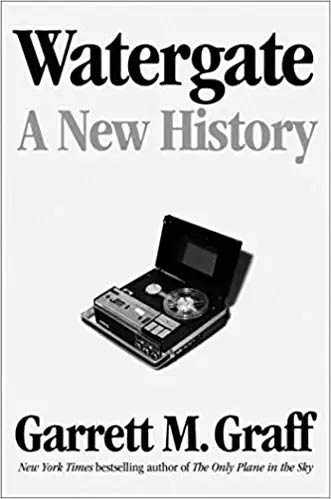
Watergate: A New History, Garrett Graff
Another Watergate book? Really? Yes, and it is superb. We all know most (but not all) of the details of one of the most extraordinary events in American history, and we all know how it ends. But Graff offers meticulous detail in a gripping drama. Each of the characters come to life in fresh perspective. The brazen bigotry and law-breaking did not start or end with Watergate, and belatedly, both the president and his party chose the honorable path, analogous, in contrast, to more recent events. For those of us who lived through Watergate, or for those who only read about it in American history class, this account of Watergate will thrill and inform.

The War That Made the Roman Empire, Barry Strauss
My knowledge of Antony and Cleopatra comes primarily from Shakespeare. The good news is that the Bard got a lot of facts right. Barry Strauss gives them depth of character and puts their relationship in context with both Julius Caesar and his grand-nephew, Octavian. The political intrigue of 1st century BCE Rome is astounding, with allies and enemies shifting frequently. But it is this triangle of Antony, Cleopatra and Octavian, with Octavian’s sister, Octavia, often added to the mix, that is at the heart of events. Cleopatra comes across as perhaps the most extraordinary political woman in history. Had she and Antony prevailed, the center of the Western world would almost certainly have shifted to Alexandria, the Roman Empire would have turned east, not west, and history would certainly have taken a different path. Strauss puts all this together seamlessly, demonstrating how he is our finest historian of ancient Rome extant.
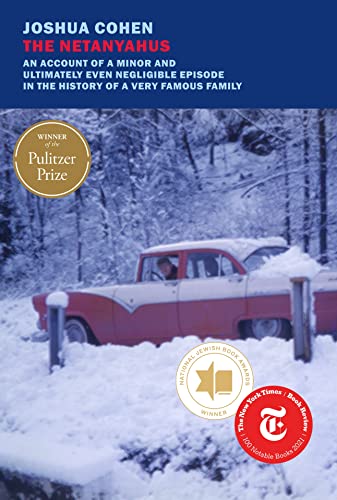
The Netanyahus, Joshua Cohen
The great Shakespearean scholar, Harold Bloom, recounted a story to Joshua Cohen of hosting Ben-Zion Netanyahu and his family when Bloom taught at Cornell. Ben-Zion Netanyahu was the father of the future Israeli prime minister and a scholar of the Spanish Inquisition. Cohen could only tease some details from Bloom before he died, so Cohen invented the rest. On one level, the book is hilarious, as the Netanyahus impose themselves on the Blooms (Blum in this telling), with three young boys (including Bibi) that ransack their home, a wife who bullies Blum’s wife, and Ben-Zion who has nothing but disdain for the simple minds of the college where he is seeking a job. He asks Blum, for example, of one professor they meet if he is a liar in a college of fools or a fool in a college of liars. It is a humor reminiscent of A Confederacy of Dunces, albeit through a very different character. On another level, though, through Ben-Zion’s lectures and Blum’s musings, the book asks profound questions of identity and belonging and suffering. It probes the values of American Jewry and its relationship with both Israel and America, but could apply equally to any minority group. A deserving winner of this year’s Pulitzer Prize, The Netanyahus is brilliantly funny, profound and provocative.
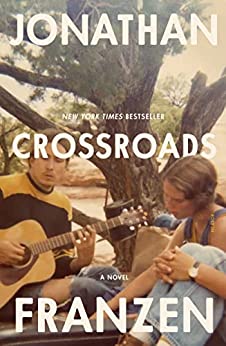
Crossroads, Jonathan Franzen
Some of Franzen’s novels are astonishingly brilliant (Corrections), others plodding (Purity). Crossroads is brilliant, highlighting why no one constructs a sentence like Franzen does on every page of this novel. Russ Hildebrandt is an associate pastor in a Chicago suburb in the early 1970s, struggling to remain faithful to his wife and to his religion in an era where social mores are challenged by a new generation. He is jealous of a young, hip junior pastor who runs the church youth group, cleaving a gap between Russ and his four children. The big questions Franzen raises are about free will and the impact of religion on family, but the true beauty of this book is the memorable characters, some center, some peripheral to the story, each with a complexity and empathy that haunts and attracts and will be long-remembered.
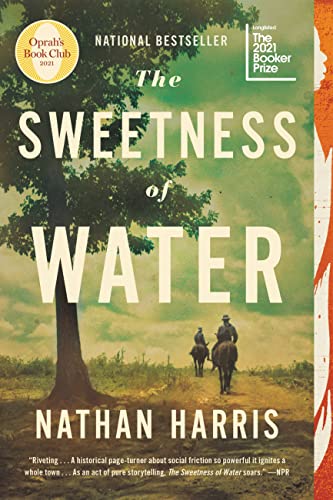
The Sweetness of Water, Nathan Harris
In the days after the end of the Civil War, two former slaves, brothers, wander onto the adjacent property in rural Georgia and are employed, and befriended, by the white landowner. This causes conflict with the whites of the town who may acknowledge their side lost the war but have not accepted that their way of life should change. Tensions build as the brothers and their employer navigate their free legal status, modestly enforced by the presence of a Union general nearby, with a society that is in turmoil. The plot is gripping, but it is the depiction of rural life in the immediate aftermath of war and the complex relationships among its inhabitants that makes this book so compelling. It is an extraordinary debut novel.

Mercury Pictures Presents, Anthony Marra
Artie Feldman runs Mercury Pictures, a B-studio in 1940s Los Angeles. Maria is his assistant who rises to president of the studio, although her gender relegates her to be, officially, Artie’s assistant. Maria has a back story of escaping Mussolini’s Italy, leaving behind her father, a prominent defense attorney imprisoned for defending socialists. Artie fights his brother for control of the studio, and fights the US Senate on charges that the studio is promoting US involvement in the war. The novel is partly about Fascist horror, partly about the immigrant experience, and mostly, I think, about the nature of reality. Artifice is everywhere: in Hollywood, obviously, but it is equally present in the hypocrisy of Washington politicians as well as in the propaganda from Mussolini’s Rome. Artie is a showman, par excellence, and the words Zevin gives him dazzle with wit and the downright hysterical. But behind the laughter is tragedy, which is what makes this book so remarkable.

Tomorrow, and Tomorrow, and Tomorrow, Gabrielle Zevin
This is a remarkable debut novel. Sadie and Sam meet in a children’s hospital in LA and strike a friendship over video games. They reunite in college where each is studying creating games and they decide to build a game together. Over the years they find success and failure, but this novel works on two levels. First, Zevin conveys the artistry of the coders and developers of video games in a way I have not seen before. She has me convinced that they are the artistic equal to the movies we so celebrate. Secondly, and more importantly, this is a beautiful, flawed, tragic love story that has us laugh and cry throughout.
Print this ArticleRelated Articles
-
![New Owners]() 1 Apr, 2015
1 Apr, 2015New Owners
A few years, I was at a conference, standing in a buffet line. I must have become fixated on extracting the blueberries ...
-
![Beach Reading]() 8 May, 2024
8 May, 2024Beach Reading
I'm happy to go to the beach year-round, but it's now really becoming beach weather, so I have five new book suggestions ...
-
![Spreads]() 18 Nov, 2014
18 Nov, 2014Spreads
An interesting graphic from Ken Leech of Western Asset showing that spreads in Bondland this year are pretty much ...
-




